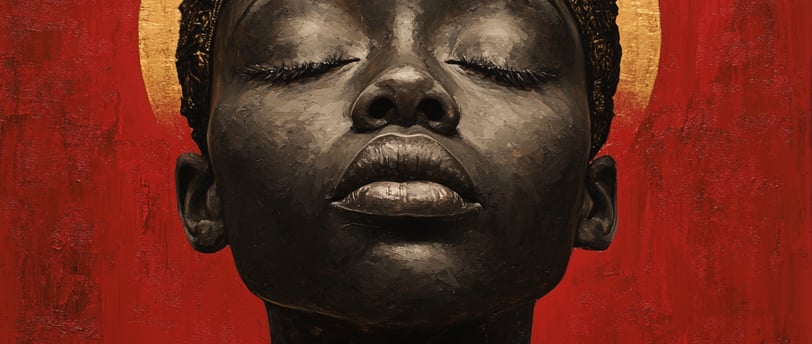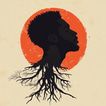From Oral Tradition to Life Lessons: The Power of African Proverbs in Modern Life
Explore the enduring wisdom of African proverbs and their striking parallels with stoic virtues. Discover how these time-tested sayings provide guidance on wisdom, courage, justice, and resilience, shaping cultural identity and personal growth in today's fast-paced world.
Kwame Otieno Bala
2/5/20253 min read


Introduction
Imagine a world where life’s deepest lessons aren’t tucked away in dense philosophy books but passed down in a single, powerful sentence. That’s the world of African proverbs. These bite-sized nuggets of wisdom have shaped African thought for centuries, offering insights into human nature, morality, and resilience.
Surprisingly, they’re not so different from the teachings of the Stoics—those ancient Greek and Roman philosophers who believed in reason, virtue, and inner strength. So, what makes African proverbs so effective, and how do they echo Stoic virtues? Let’s dive in.
African Proverbs: More Than Just Sayings
African proverbs are not just old-fashioned catchphrases. They are cultural blueprints, offering guidance on life’s biggest dilemmas.
The Educational Value of Proverbs
In many African societies, proverbs aren’t just spoken for effect; they’re tools for teaching. Ever heard the Swahili proverb, "Haraka haraka haina baraka" (Hurry, hurry has no blessings)? It’s a simple yet profound reminder that rushing through life often leads to poor decisions.
Or take the Yoruba wisdom: "A wise man who knows proverbs reconciles difficulties." In other words, true intelligence isn’t about having all the answers—it’s about knowing how to apply wisdom to solve problems.
Ali A. Mazrui noted, "The African experience is incomplete without its oral traditions, for therein lies the true soul of the people." This reinforces the enduring role of proverbs in shaping societal values.
Philosophy in a Sentence
Some of the most complex ideas about life, humanity, and balance are distilled into African proverbs.
Consider Ubuntu philosophy, captured in "A person is a person because of other people." This speaks to the interconnectedness of human existence, a concept echoed in Stoic thought, where self-improvement is tied to the well-being of the larger community.
Similarly, the Igbo saying "He who will hold another down in the mud must stay in the mud to keep him down" warns against injustice—an idea central to both African morality and Stoic philosophy.
Kwame Nkrumah also emphasized interconnectedness: "I am not African because I was born in Africa but because Africa was born in me." This underscores the deep-rooted identity and philosophy that proverbs convey.
Stoicism and African Proverbs: A Surprising Connection
The Stoics, much like African philosophers, believed in wisdom, courage, justice, and self-discipline. Let’s break it down.
Wisdom: The Art of Thinking Clearly
Both traditions emphasize clarity of thought and decision-making. The Stoics held wisdom as the highest virtue, just as African culture celebrates the wise elder who speaks in proverbs.
Take this African gem: "Wisdom is like a baobab tree; no one individual can embrace it." Knowledge isn’t owned—it’s shared, just like the Stoic belief that philosophy belongs to all who seek it.
Chinua Achebe once said, "Proverbs are the palm oil with which words are eaten." This highlights their role in making complex ideas more digestible and memorable.
Courage: Facing Life Without Fear
Courage isn’t the absence of fear—it’s mastering it. The Akan proverb, "The brave man is not he who does not feel afraid, but he who conquers that fear," mirrors the Stoic idea that fear should never dictate action. Marcus Aurelius would have approved.
PLO Lumumba further supports this by stating, "The wisdom of our ancestors is contained in proverbs; a people who ignore their proverbs ignore their heritage."
Justice: Treating Others with Fairness
Fairness and integrity are key virtues in both traditions. The African proverb "A single bracelet does not jingle" reminds us that success isn’t a solo journey—we thrive through cooperation and mutual respect, just as the Stoics emphasized duty to society.
The Timeless Relevance of Proverbs
We live in an era of information overload, but the wisdom of African proverbs and Stoic virtues remains strikingly relevant. Why? Because they cut through the noise and get to the heart of what truly matters.
Practical Takeaways
Personal Growth: Want to make better decisions? Learn from the Yoruba proverb—real wisdom lies in applying knowledge.
Relationships & Community: Struggling with teamwork? Remember, "A single bracelet does not jingle." Collaboration is key.
Resilience: Life throwing curveballs? "Haraka haraka haina baraka"—slow down and stay steady.
Conclusion
Separated by geography but united in purpose, this reflection on African Stoicism remind us of something crucial: wisdom is timeless. Whether it’s the spoken word of an elder or the written musings of a philosopher, the message remains the same—live wisely, act justly, and embrace resilience. Because at the end of the day, isn’t that what a good life is all about?
Suggested further reading:
